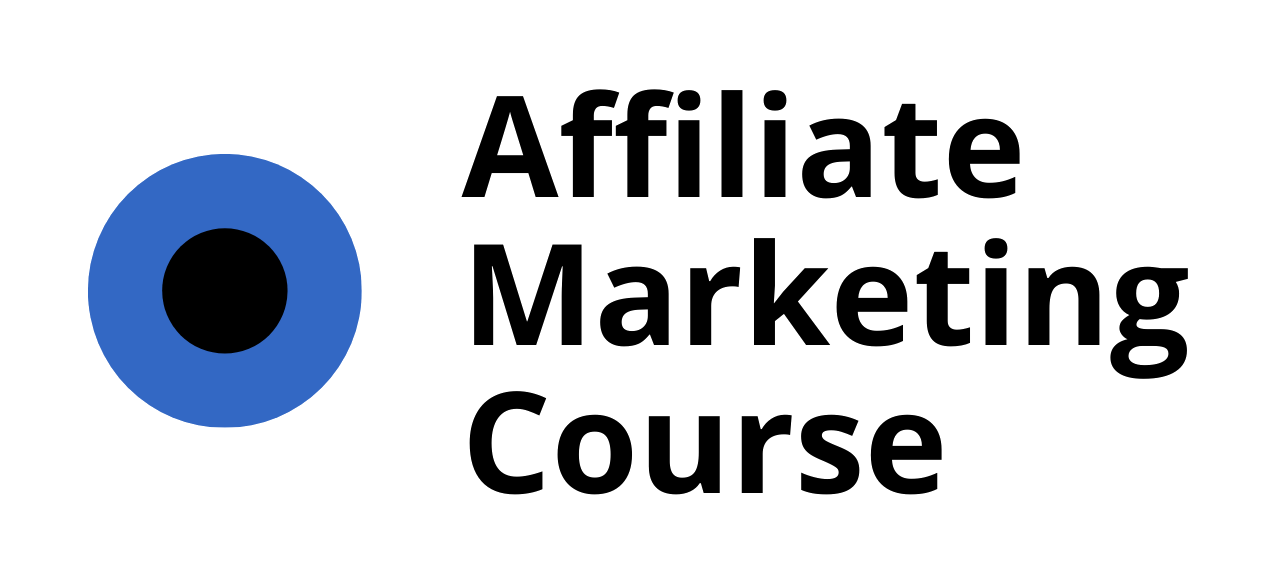Are you curious about how to break into affiliate marketing without the hassle of building a website? If you’ve ever wondered if it’s possible to achieve success in this lucrative field without the traditional setup, you’re not alone. Many entrepreneurs and marketers are discovering that affiliate marketing without a website is not only feasible but also offers unique advantages. In this guide, we’ll explore proven techniques and strategies that allow you to leverage affiliate marketing opportunities even without owning a website. From understanding the basics to unlocking earning potential, we’ll cover everything you need to know to start your affiliate journey confidently. Whether you’re looking to dip your toes in the water or dive headfirst into this rewarding world, this article will provide the insights and tools you need to succeed. Let’s uncover how you can harness the power of affiliate marketing without a website and unlock the doors to a new realm of income possibilities.
Key Takeaways
– Why a Website Boosts Your Affiliate Strategy
– A website isn’t mandatory for affiliate marketing but offers significant advantages like control, branding consistency, and SEO benefits.
– Top Benefits of Owning a Website
– Control Over Content: Tailor content to engage your audience and build trust.
– Brand Consistency: Establish a unique identity with consistent visuals and messaging.
– SEO Potential: Improve search engine visibility and reduce reliance on social media algorithms.
– Trackable Metrics: Measure traffic, conversions, and earnings for data-driven decisions.
– Scalability: Expand operations with additional revenue streams and handle increased traffic.
– Considerations Before Building a Website
– Cost and Time: Factor in initial setup costs and ongoing expenses like hosting.
– Learning Curve: Get familiar with web tools, SEO, and CMS platforms.
– Platform Choice: Use user-friendly options like WordPress or Wix.
– Getting Started Smartly
– Begin with a blog to explore affiliate content and learn SEO techniques.
– Long-Term Website Benefits
– Invest in a website for sustained growth and scalability in affiliate marketing.
– Challenges of Affiliate Marketing
– Dependency on third-party partners can impact performance.
– Navigating competition and regulatory compliance is crucial.
– Maintain transparency to avoid negative consumer perceptions.
– Manage high acquisition costs and product inconsistencies.
– Amazon Affiliate Program Insight
– Typically requires a website for professional promotion and credibility.

Can I Be an Affiliate Without a Website?
Yes, you can certainly explore affiliate marketing opportunities without owning a website. Here are several effective strategies:
- Social Media Platforms : Promote affiliate links on platforms like Instagram, Facebook, Twitter, or Pinterest. Ensure compliance with each platform’s policies to avoid being flagged for spam.
- Affiliate Networks : Join platforms like Amazon Associates, ShareASale, or ClickBank. These networks often allow promotion via emails, social media, or referral links without requiring a personal website.
- Email Marketing : Build an email list and send affiliate links to your subscribers. Consider offering incentives for sign-ups, such as discounts or free resources.
- Collaborate with Influencers : Partner with established influencers or bloggers to promote their affiliate links. Pitch yourself as a valuable affiliate partner to leverage their audience.
- Content Creation : Create videos or podcasts discussing products. Include affiliate links in video descriptions or podcast show notes without needing a traditional website.
- Referral Programs : Participate in companies’ referral programs where you can earn commissions by referring customers through your unique links.
- Landing Pages : Utilize tools like Leadpages to create a simple, one-page site showcasing affiliate offers, serving as a bridge between full website creation and direct link-sharing.
Remember to adhere to legal requirements, such as disclosing affiliate relationships to maintain trustworthiness and avoid penalties.
Can You Make $100 a Day with Affiliate Marketing?
Yes, it is possible to earn $100 a day through affiliate marketing with consistent effort and strategic planning. Below are the key steps and strategies to achieve this goal:
1. Choose a Niche
- Select a niche you are passionate about or familiar with. A focused approach ensures targeted traffic and higher conversion rates.
2. Build an Audience
- Create content around your chosen niche to attract visitors. Use platforms like blogs, YouTube, or social media to share valuable information and establish credibility.
3. Monetize Effectively
- Place affiliate links strategically within your content. Write product reviews, comparisons, and guides that highlight the benefits of the products you promote.
4. Leverage Email Marketing
- Build an email list and send regular newsletters with affiliate offers. This allows you to reach your audience directly and increase conversion rates.
5. Optimize for Performance
- Use tracking tools to monitor your campaigns. Analyze which strategies perform best and adjust your approach accordingly to maximize earnings.
6. Stay Consistent and Patient
- Building a successful affiliate marketing business takes time. Stay committed, experiment with different tactics, and remain patient as you work towards achieving your goals.
By following these steps and continuously improving your strategies, you can build a profitable affiliate marketing business that generates $100 or more per day. Remember to leverage resources like AffiliateMarketingCourse.biz to enhance your skills and stay ahead of the competition.

What is the 80/20 Rule in Affiliate Marketing?
The 80/20 rule in affiliate marketing refers to the principle that 20% of your affiliate partners will account for approximately 80% of your total sales volume. This relationship highlights the importance of identifying and leveraging high-performing affiliates to maximize revenue.
Why Does the 80/20 Rule Matter?
- Focused Effort: By concentrating on your top 20% of affiliates, you can allocate resources effectively to nurture and reward these high performers, driving significant sales growth.
- Targeted Strategies: Understand what makes these top affiliates succeed and replicate their tactics to attract similar talent to your program.
- Efficiency: This rule emphasizes the importance of efficiency in affiliate marketing, allowing you to focus on the most impactful partnerships while still achieving substantial results.
Key Points to Keep in Mind:
- Identify Top Performers: Regularly track metrics like conversion rates, click-through rates, and sales to pinpoint your highest-performing affiliates.
- Reward Excellence: Offer incentives or commissions to your top affiliates to motivate them to continue performing at a high level.
- Expand Your Network: Continuously seek out new affiliates who have the potential to become top performers, possibly through targeted outreach or partnerships with established networks.
How to Apply the 80/20 Rule Effectively:
- Monitor Performance Daily: Use analytics tools to monitor affiliate performance and adjust strategies accordingly.
- Provide Resources: Offer training, tools, and support to help your top affiliates succeed, which in turn boosts your overall program performance.
- Communicate Regularly: Maintain consistent communication with your top affiliates to keep them engaged and informed about new opportunities or updates.
Scaling Your Affiliate Program:
- Acquire High-Quality Affiliates: Focus on recruiting affiliates with a proven track record of success in similar niches or industries.
- Optimize Your Program: Continuously improve your affiliate offerings, such as commission structures or promotional materials, to attract more top-tier affiliates.
By understanding and applying the 80/20 rule, you can streamline your affiliate marketing efforts, maximize your sales potential, and build a robust network of high-performing partners.

Should I Have My Own Website for Affiliate Marketing?
Having your own website for affiliate marketing offers significant advantages that can enhance your strategy and outcomes. While social media platforms can be used for affiliate marketing, a dedicated website provides greater control, branding consistency, and search engine visibility.
Advantages of Having Your Own Website
- Control Over Content: Create tailored content that aligns with your audience’s interests, ensuring engagement and trust-building.
- Brand Consistency: Establish a unique brand identity with a consistent visual and content style, helping you stand out in the market.
- Search Engine Optimization: Optimize your website for search engines to increase visibility and attract organic traffic, reducing reliance on social media algorithms.
- Trackable Metrics: Accurately measure traffic sources, conversions, and earnings, enabling data-driven decisions for future strategies.
- Scalability: Easily scale your operations by introducing additional revenue streams and handling increased traffic effectively.
Considerations Before Creating a Website
- Cost and Time Investment: Building and maintaining a website involves initial setup costs and ongoing expenses like hosting and domain registration.
- Learning Curve: Familiarize yourself with web development tools, SEO practices, and content management systems to effectively manage your site.
- Platform Choice: Use user-friendly platforms like WordPress or Wix to simplify the creation process, especially if you’re not tech-savvy.
Getting Started
Start with a simple blog to create content around affiliate products, gradually integrating affiliate links. Focus on learning SEO techniques to improve your website’s ranking potential.
Conclusion
In summary, while affiliate marketing can be done without a website, having one provides long-term benefits in control, branding, and scalability. Investing in a well-designed website is a strategic move that can drive sustained growth and success in your affiliate marketing endeavors.
Is There a Downside to Affiliate Marketing?
Yes, there are several potential downsides to affiliate marketing, despite its many advantages. Understanding these challenges can help you make informed decisions about whether this marketing strategy fits your business goals.
- The Content is for Affiliate Marketing Course Here is a Summary of Them:
- You Must Mention Competitors When Applicable and Be Neutral About Them Plus Link to Them When Applicable:
- Compliance Issues Can Arise:
- Potential for Negative Consumer Perception:
- Cost of Traffic Acquisition Can Be High:
- Limited Control Over Products Promoted:
Affiliate marketing requires careful management to avoid common pitfalls. One major drawback is the dependency on third-party partners. While affiliates can drive significant traffic and sales, their performance can vary, impacting your overall marketing efforts.
Competition is another challenge. With numerous affiliate networks and programs available, it’s easy for your affiliate partnerships to become saturated. This can lead to reduced effectiveness as multiple affiliates may be promoting similar products or services.
Affiliate marketing also involves legal considerations. You must comply with regulations such as the Federal Trade Commission (FTC) guidelines in the U.S., which require disclosure of affiliate relationships. Failure to meet these requirements can result in penalties or legal actions.
Consumers are increasingly aware of affiliate marketing and expect transparent interactions. If not handled properly, promotions that seem too promotional or lack genuine value can lead to negative perceptions of your brand.
Some affiliate programs charge for access to their network or require you to pay for traffic generation. This cost can add up quickly, particularly if your campaign does not yield the expected returns.
When working with multiple affiliates, you may find that they promote a variety of products, some of which may not align with your brand’s values or image. This can lead to inconsistencies in your marketing messaging.

Does Amazon Affiliate Require a Website?
To join the Amazon Affiliate program, you typically need to demonstrate that you have a platform capable of driving traffic and engagement. While some affiliate programs may allow participation through social media or email campaigns, Amazon Affiliates generally requires a website. This is because a website provides a stable and controlled environment for promoting products effectively. It allows you to showcase your content, build an audience, and establish credibility with potential customers.
Having a website is often seen as a crucial step in the application process for Amazon Affiliates. It signals professionalism and seriousness about promoting their products. Once approved, you can begin placing affiliate links and banners on your site, helping to generate commissions through qualified sales.
In summary, while alternative methods exist, Amazon Affiliates typically mandates the use of a website to participate in their program. This requirement helps ensure that participants are prepared to contribute positively to the program’s success.




0 Comments